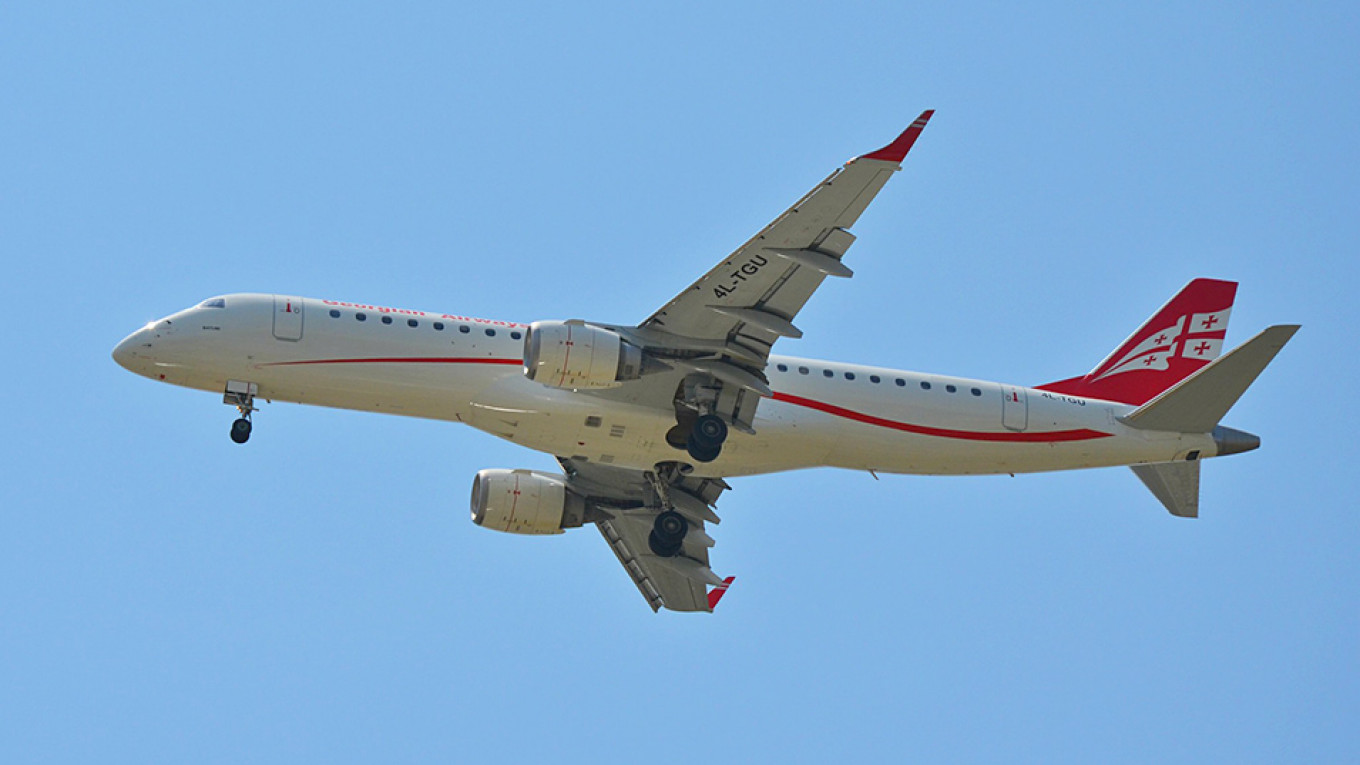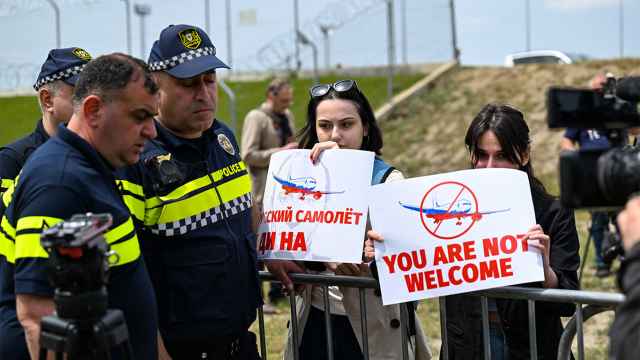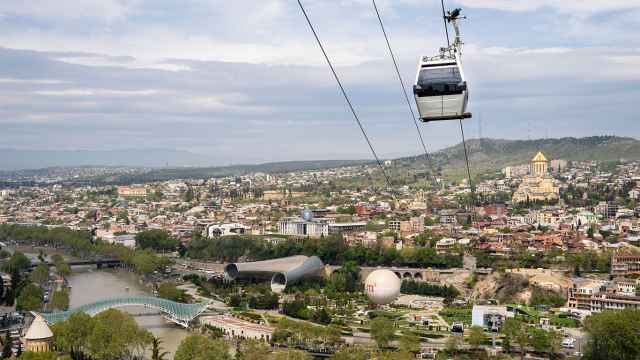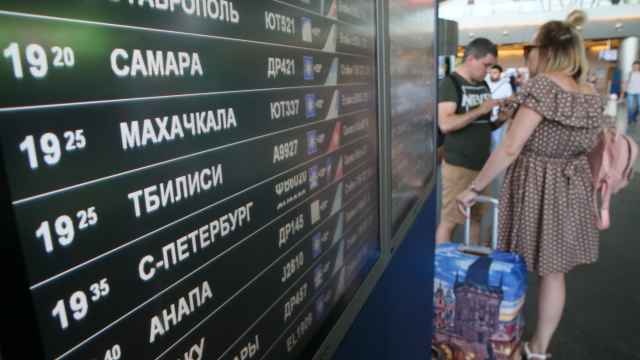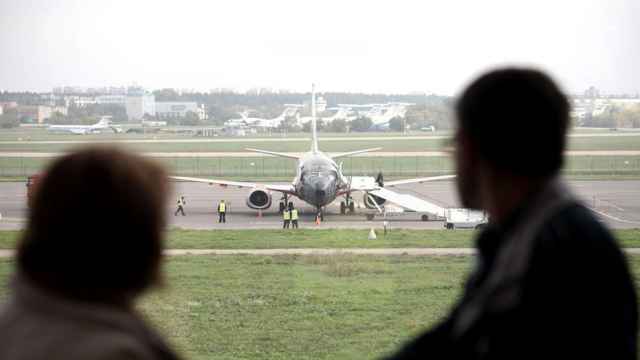Russian airlines are ‘desperate’ for compensation from the government after its ban on direct flights to Georgia cost them a combined 3.2 billion rubles ($50 million), the Vedomosti business daily reported Wednesday.
President Vladimir Putin ordered the temporary ban of passenger flights from Russia to Georgia this summer following an outbreak of unrest in Tbilisi triggered by the visit of a Russian lawmaker. The Russian government promised at the time to compensate airlines for their losses.
“We do not expect to receive compensation; these promises will not be fulfilled,” Vedomosti cited three unnamed airline employees as saying.
There has been “no progress” in compensation talks with the Transportation Ministry, one of the airline employees was cited by Vedomosti as saying. Most likely, talks will continue at a “sluggish” pace until flights to Georgia resume and the topic dies, another airline employee told the news outlet.
The airlines’ fears reportedly stem from them not being compensated for a rise in kerosene prices in 2018 despite a presidential order.
Ural Airlines has reportedly suffered the most, with losses estimated at 1.2 to 1.3 billion rubles ($18 to $20 million). Russia’s national flag carrier Aeroflot and second-largest airline S7 have each lost about 700 million rubles ($10 million).
Pobeda, a low-cost carrier, has lost 400 million rubles ($6 million), while Red Wings has lost about 120 million ($1.8 million) and Smartavia has lost close to 100 million rubles ($1.5 million).
While Foreign Minister Sergei Lavrov has said “it would be right” to restore direct flights to and from Russia and Georgia, no date has been set for resuming them.
Moscow and Tbilisi have not had diplomatic ties since fighting a short war in 2008. Russia went on to recognize the independence of two breakaway Georgian regions, South Ossetia and Abkhazia, where Russian troops are now garrisoned.
A Message from The Moscow Times:
Dear readers,
We are facing unprecedented challenges. Russia's Prosecutor General's Office has designated The Moscow Times as an "undesirable" organization, criminalizing our work and putting our staff at risk of prosecution. This follows our earlier unjust labeling as a "foreign agent."
These actions are direct attempts to silence independent journalism in Russia. The authorities claim our work "discredits the decisions of the Russian leadership." We see things differently: we strive to provide accurate, unbiased reporting on Russia.
We, the journalists of The Moscow Times, refuse to be silenced. But to continue our work, we need your help.
Your support, no matter how small, makes a world of difference. If you can, please support us monthly starting from just $2. It's quick to set up, and every contribution makes a significant impact.
By supporting The Moscow Times, you're defending open, independent journalism in the face of repression. Thank you for standing with us.
Remind me later.


